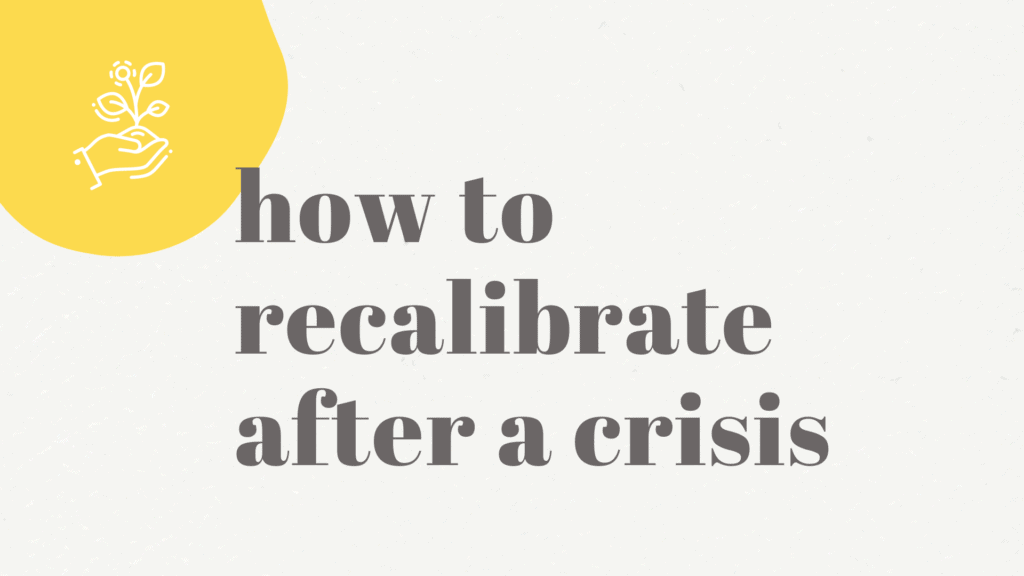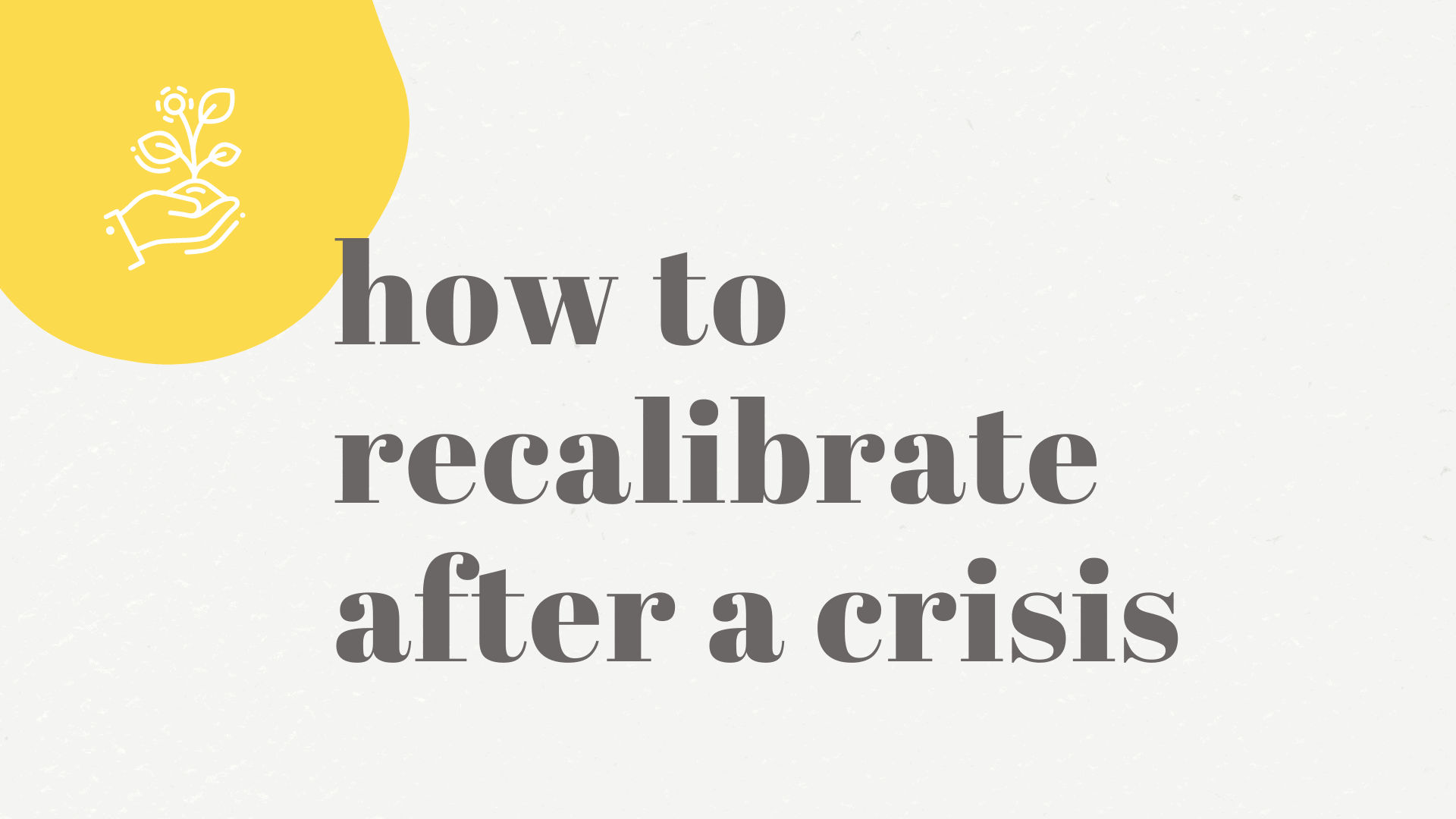
Cultivating resilience during tough times
“Your track record for getting through your worst days is 100%.” This popular motivational quote is not only accurate, it demonstrates an important strategy for anyone struggling with adversity.
In the midst of the pandemic and political and civil unrest of 2020 and now 2021, you likely also navigated job insecurity, financial stresses, losses, isolation, and family and interpersonal conflicts. Many of us couldn’t wait for 2020 to end. But turning the calendar page or starting a new calendar entirely brings little likelihood of actually changing your life. And indeed the pandemic is likely to affect us throughout a big portion of 2021 as well. So how do you bounce back after (or during) a crisis?
Resilience is defined as the capacity to recover quickly from difficulties. Note that the word difficulties is plural. Recovery is more straightforward and simple when we’re dealing with one problem at a time. Yet few of us have just the pandemic to grapple with. Resilience is dealing with several stressors at once and still bouncing back.
Consider What’s Worked for You in the Past
One way to recalibrate and overcome adversity is to begin with a written list of the activities and habits that have worked for you in the past to achieve your goals, feel more productive, and maintain positive energy. Think of a time in your experience when you’ve overcome a challenge. What worked for you? As the opening quote illustrates, just reminding yourself of all the times you’ve overcome adversity can renew your energy.
Cultivate Wellness
If you need to, start more simply. Start with wellness. Do you find your mood and attitude improve if you listen to music or a podcast? When are you able to exercise most consistently—in the morning when you wake up, during your lunch hour, or after you finish work? Write that down too. And make note of the types of exercise that make you feel better mentally. What helps you get optimum sleep? Is it setting the temperature in your bedroom a little cooler, going to bed at a certain—presumably earlier—time, or winding down with a warm shower or bath before bed?
Communicate and Collaborate
Applying this concept to work challenges, do you find it helpful to collaborate with certain people when you feel stuck? Do you need to set a boundary or verbalize an expectation to get a different result? Would a phone call help clear up confusion rather than an email? I’ve had many experiences where a volley of emails felt like a crisis looming, but when I picked up the phone instead, the crisis was averted. Be sure to list anything that has helped you in the past.
Note Any Distractions or Barriers
Next, write a separate list of the things that get in your way of staying focused on what you want to accomplish. What distracts you from being productive and reaching more of your goals? Are you spending too much time writing emails people won’t read when you can get what you need far more easily by having a conversation? Perhaps scrolling through social media or the news is interrupting your flow and bringing you down. Maybe it’s the notifications you receive on your phone. It may even be the pull of online shopping. Many people have family and home responsibilities to care for. Are they disrupting your plans? Don’t try to solve the problem at this point. Simply add items to the list.
Review Successes and Opportunities for Improvement
Now that you have two lists, review the first list and consider how those things help you and what went into making them happen? For instance, do you have a favorite podcast, rely on recommendations from friends, or search for podcasts you might enjoy? It might be helpful to subscribe to podcasts you’ve found helpful and make note of recommendations from friends so you have options at your fingertips when the time is right.
As for exercise, do you find that walking outdoors helps you to get your wiggles out, so to speak, and makes you feel more positive mentally? What time of day works best for you? How do you need to arrange your schedule to make those walks happen more regularly? Does it help to set out your exercise gear in plain view the night before or morning of?
And what about your bedtime routines? Does reading before bed help calm you? There’s a reason we read bedtime stories to children. Do the same for yourself. Take some time to get away from the blue lights of your devices and read the printed page. (If you’re an ebook reader, give those blue-light blocking glasses a try.)
Reflect on What You Can Eliminate
Now focus on the second list, the list of things that distract you from your goals. In many cases, you may simply choose not to do them. Many lifestyle coaches recommend not reaching for your phone first thing in the morning or avoiding the news and social media until a specified time in the day after you’ve crossed a few important items off your to-do list. See Gwen Moran’s Fast Company article, “Habits to Drop in 2021—and What to Do Instead,” for more ideas.
Other things like family responsibilities might be harder to put off. But if you’re working from home, family life and work life tend to clash and/or run together at inopportune moments. In these situations, the best advice is just to keep calm and try to get your focus back as soon as possible. And if you can’t get your focus back immediately, just watch how the CEO of Trivago handles his son busting in on his CNN interview. We all have our moments!
Understand You’re Not Alone
Yes, mini-breaks of humor help too as do grounding exercises. Lindsay Kalter & David Merrill’s Insider article describes how grounding exercises can stop you from overthinking and get back into focus as well as “deal with stress, anxiety, and PTSD.” Any many of these exercises take mere seconds for their positive effects to kick in.
Ignore the Bright Side
Forbes contributor Paula Davis explains how to stay mentally strong when dealing with unexpected adversity. She shares that it’s ok to ignore toxic positivity. “Toxic positivity usually starts with the following phrases: ‘Well at least…;’ ‘Look on the bright side;’ or ‘It could be worse.’” We’ve all heard those well-meaning comments at one time in our lives and likely over the past year. The trouble with these statements is that we are likely feeling very real and justifiable feelings. Toxic positivity doesn’t help. Ignore it.
Neuroscientist Moran Cerf explains that “some emotions are part of neural circuit that’s not fully under our conscious control.” His Business Insider article shares “Tips for Regulating Anxiety and Emotions during Tumultuous Times.” Spoiler alert: none of his tips involves listening to toxic positivity.
Learning how to bounce back from a crisis requires reflection, managing emotions, eliminating distractions, and taking action. Keeping and referencing a list of what’s worked for you in the past, avoiding the habits and situations that stall your progress, incorporating exercise and healthy habits, ignoring toxic positivity and remaining grounded in the present moment are the surest ways to stay motivated and focused while getting through a crisis, or crises, successfully. And most important for continued success, hold on to your two lists, add daily milestone successes, and periodically review both lists and your successes to help you when your momentum is flailing.
Resources
Try These Resources for More on Resilience and Cultivating Good Habits
Follow @MelRobbins Instagram.
Read ‘Five Second Rule’ by Mel Robbins.
Follow @AmyPurdy on Instagram.
Read ‘On My Own Two Feet’ by Amy Purdy.
Read ‘Option B’ by Cheryl Sandberg.
Follow BJ Fogg on Twitter.
Read ‘Tiny Habits’ by BJ Fogg, PhD
Nelida Ruiz is a marketing and business development consultant and coach helping business owners maximize thought leadership with blogs, articles, and social media. For more of her work visit www.nelidaruiz.com



